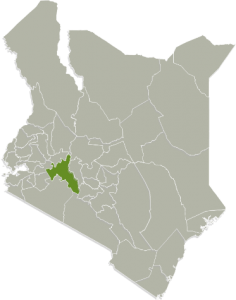| CATEGORY: | Private Sector |
| CSA PROJECT: | Conservation agriculture for resilient food security and economic growth in Africa |
| SCALE: | International Coordination actions, National level implementation |
| LOCATION: | Nakuru |
| PERIOD OF THE PROJECT: | 2017-2021 |
| GRANT SIZE OF THE PROJECT: | N/A |
AFRICAN CONSERVATION TILLAGE NETWORK

SUMMARY OF ACTIONS
The organisation engages in activities aiming at: improved policy environment, political commitment and leadership for scaling up adoption of conservation agriculture (CA); capacity developed of civil society organizations (CSOs) and entrepreneurial CA service provider associations (CASPA); high quality CA training and services delivered while ensuring improved access to supportive CA knowledge and information for scaling up in Africa.
CONTEXT
From the farmers’ perspective, there is observable variation in climatic conditions in Nakuru County over the past years. Weather patterns have become less predictable and the onset of seasons has changed. Specifically, the rains have become more unpredictable and unreliable while temperature has increased significantly. This requires farmers in Nakuru County to adopt various strategies to cope with variations and changes in climate to ensure agricultural production and food security.
OBJECTIVE
The project long-term goal is to improve food security, economic growth and increase climate change resilience of smallholder farmers in Africa through conservation agriculture.
KEY INTERVENTIONS
| FARM LEVEL | TARGET (NO OF FARMERS) (KENYA) | INDICATORS MONITORED |
| Soil management | 2000 | SFI, Soil moisture, soil biology, soil properties |
| Disease and pest management | 2000 | % reduction in pest and disease, biological control, cultural control |
| Use of drought tolerant crops | 2000 | Types of crops, acreage planted |
| Conservation agriculture | 2000 | Adoption levels, soil properties, soil moisture retention, infiltration rate, soil cover, types of rotation, acreage under CA, |
| BEYOND FARM LEVEL | TARGET BENEFICIARIES | INDICATORS MONITORED |
| Policy formulation | Farmers, Extension staff, | No of fact sheets developed and shared |
| stakeholders, County Govt staff | No of meetings with policy makers, farmers or stakeholders
Exposure visits by policy makers |
|
| Research | Farmers, extension staff, county Govts | No of trials and demonstrations
No of technologies tested and validated No of results sharing conferences No of scientific publications |
PARTICIPATION IN KEY CLIMATE & AGRICULTURE NETWORKS
African Conservation Tillage Network is a member of the following networks: CA hub Kenya, CA News, CARWG, CSA-MSH and Kenya Climate Smart Agriculture Multi-stakeholder Platform.
INVOLVEMENT IN CSA
RELEVANCE OF CSA MSP TO WORK
- Research
- Policy formulation
- Knowledge dissemination
- Technology transfer
- Coordination and networking
- Communication
- Networking
- Learning and exchange
- Information about CSA
- Influence policy environment
RECOMMENDATION ON WAYS TO SUPPORT MSP
- Dissemination of CSA agriculture knowledge and technologies
- Developing specific CSA policies, legislations, strategies and plans
- Capacity building of key actors involved in climate smart agriculture knowledge and technologies
- Conduct research to provide scientific evidence
- Coordination of actions related to Climate smart agriculture.
Monitoring, evaluation and audit of climate smart agriculture aspects to enhance accountability
LESSONS LEARNED/CHALLENGES IN CSA PROJECT IMPLEMENTATION
The integration of livestock with conservation agriculture will go a long way to enable mixed farmers to embrace conservation agriculture. Capacity building of the conservation agriculture centre of excellence will influence the uptake of conservation agriculture. The poor rainfall distribution results in crop failures and delays in setting up demonstrations/trials. There is need for more engagement with the private sector to boost their confidence in offering hire services on machinery.
